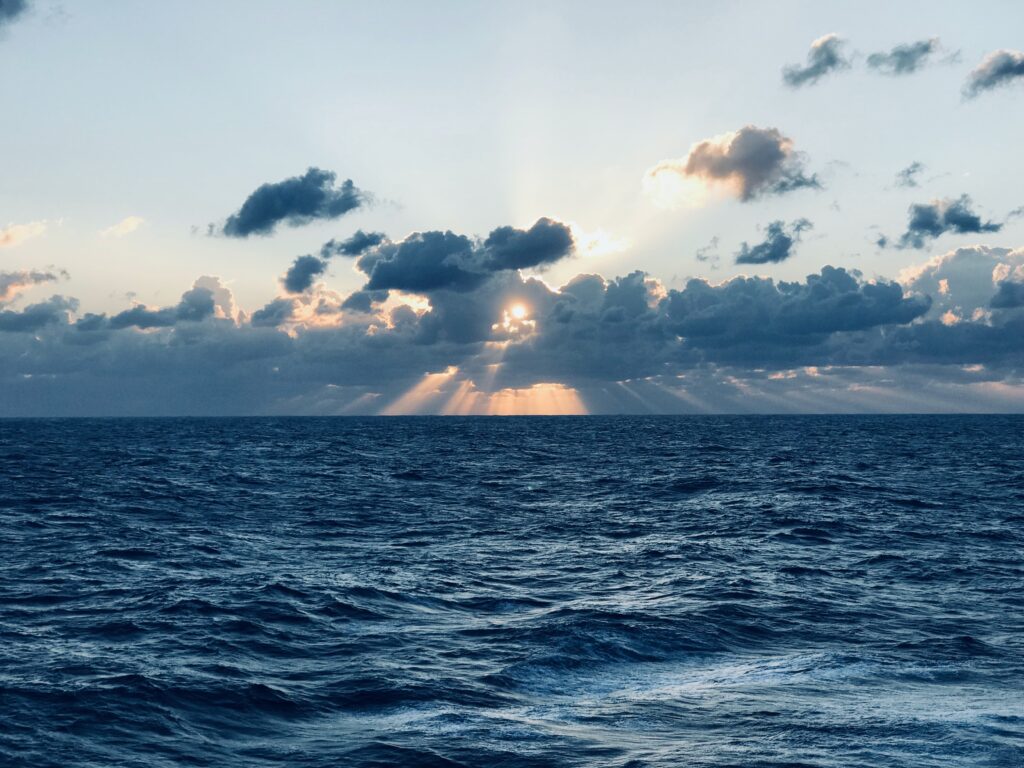The current crises are converging and adding up, producing a rapidly changing global picture, centered on new developments in international logistics and the search for new balances in the energy field. There are many economic and political risks, but for some countries, such as Italy, in the center of the Mediterranean, many interesting opportunities are emerging.
By Massimo Deandreis

The pandemic before and the Russian-Ukrainian war have accelerated changes previously underway and today it seems clear that we are faced with the redefinition of geo-economic and political scenarios with completely new and largely still unknown impacts. It is difficult to predict the future; it is more prudent to limit oneself to observing the axes on which the international economy is changing, looking at where we come from and in which direction we are going. With this perspective, a major change concerns the evolution of the Mediterranean area, with particular emphasis on opportunities that may arise for Italy, a country at the geographical center of this vast area overlooked by many European and non-European countries.
The new centrality of the Mediterranean
The Mediterranean is emerging as an area of the world that is regaining its centrality compared to what it already was before. It is not so much the numbers, however important, that signal this evolution: the 20% of world maritime traffic, the 27% of container handling and the 30% of global energy traffic pass through the Mediterranean which represents the 1% of the seas. And then the fact that the traffic of the 25 most important ports in the Mediterranean has grown uninterruptedly, reaching +120% from 2005 to today, passing unscathed in relation to the various crises that have followed.
The point, however, is not only in these numbers, even if they are already important in themselves. While in the context of the unbridled globalization of the first two decades of the 2000s the Mediterranean was predominantly an area of passage and connection between Asia and the Atlantic (and therefore the growth in numbers represented above all the "legacy" of being a transit area) today the geo-economic role evolves into a strategic place of junction between the world's macro-regions.
If we let ourselves be helped by geography (which in economics matters a lot, albeit often forgotten) we observe that the Mediterranean is the only region of the world to see close contact between three continents, Europe, Africa and Asia, as well as being an obligatory passage (through Gibraltar ) to reach the Atlantic coast of America. The Suez Canal also physically represents this contact between Asia, Europe and Africa. This is demonstrated by the further growth recorded in 2021 with the goal of almost 21,000 ships transiting in one year.
The Mediterranean is thus transforming itself from a sea of passage into a sea of competition where the regionalization of globalization can be seen closely. There is a strong risk: that it becomes a place of confrontation and tensions; a new "iron curtain" of fractures and global tensions between the West, Russia and China.
The opportunity instead is to make it the main point of contact, economic and logistic osmosis between the global macro-regions. Strategic intersection between areas of the world which, although in competition with each other, inevitably need to have points of contact and exchange.
We need to avoid the first option and commit ourselves to the second. Even in the darkest moments of clashes and wars, the Mediterranean in its millenary history has always been a sea that has united rather than divided. And Italy is geographically in the middle.
A great opportunity for Italy
This new global context, though so difficult, uncertain, different from the past, can generate new opportunities for our country. Once again the combination of logistics and energy is at the centre. With gas supplies cut off from Russian pipelines, the flow from the South Mediterranean becomes even more strategic. And it is Italy, not other countries, that is the European gateway, with gas pipelines from Algeria and Tunisia and the TAP, for flows from the South.
The eastern Mediterranean is also strategic for the European energy security and its role is set to grow further with Russia's threat to further cut supplies. Egypt is an important player and partner for Italy and, in addition to having huge resources (think of Thor discovered by ENI off the Suez coast), it has infrastructure and liquefaction plants.
If we then look at the map of pipelines existing and those under construction, we see that they all arrive near the ports of the South. The Italian port system proves once again to be strategic for the country's role and for European interests. And not only for the ports of the South. We recall that Trieste has a significant role as an energy port and mainly serves the markets of Central Europe even more than the national one.
Ports are also at the center of a strategic transformationa: from purely logistic hubs (freight and passenger transport) they will soon become energy hubs as well. Technologies today allow floating offshore photovoltaic plants as well as wind farms for the production of renewable energy for use in ports and for industrial areas around ports. Thus making them independent, stronger, and better able to respond to the ongoing transformation needs also in the shipping industry.
To achieve this plan, however, Europe needs to relaunch a strategic partnership with North Africa, basing it not only on the increase in hydrocarbon flows (necessary in the current situation) but also building a structural alliance on renewables and hydrogen. At least with some countries. Today technologies allow what was not possible in the past. For example, to produce electricity with photovoltaic panels and then transform it into gas that can be introduced into existing gas pipelines. Or produce hydrogen. This approach would present a mutually beneficial development opportunity.
Italy, traditionally a geographical bridge between Europe and North Africa, could also perform this function as a logistic and energy hub both in the Community interest and in the wake of its traditional Mediterranean policy. Strengthening its role in Europe and the Mediterranean.
The changes taking place and the redefinition of the very complicated and difficult geo-economic and political scenarios, however, also represent a unique opportunity to try to give structural and lasting answers to the challenges of the present.
Massimo Deandreis he is General Manager of SRM Centro Studi linked to the Intesa Sanpaolo Banking Group. Since April 2016 he has been President of GEI, the Italian Association of Business Economists.






